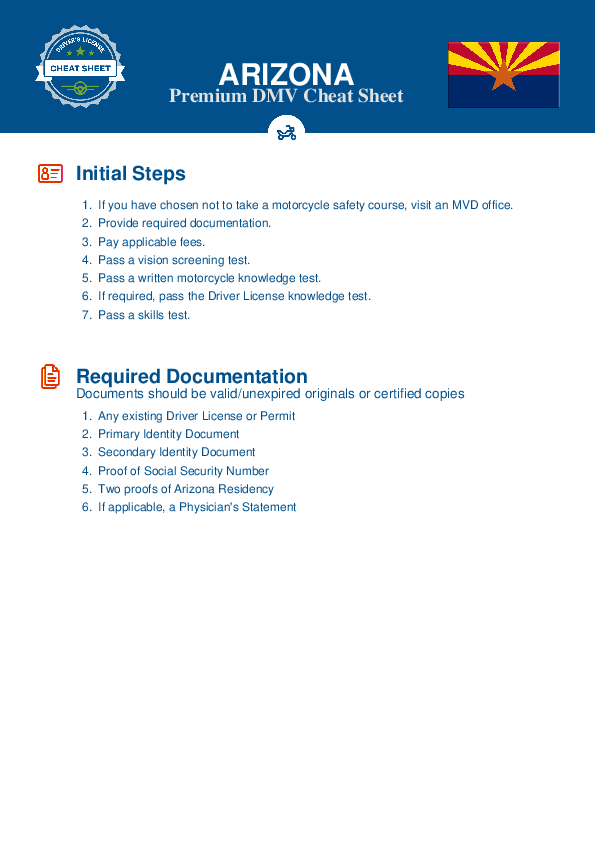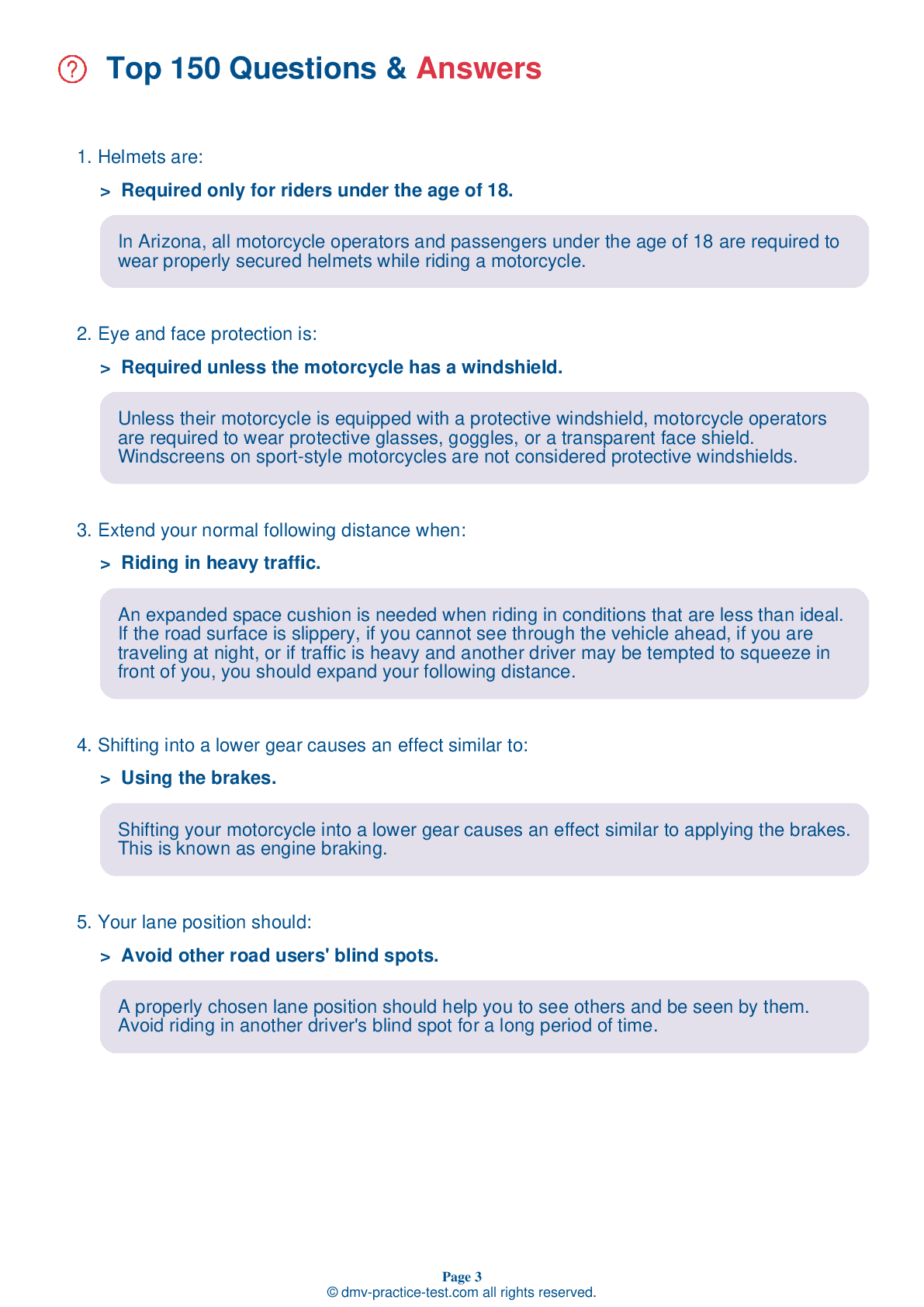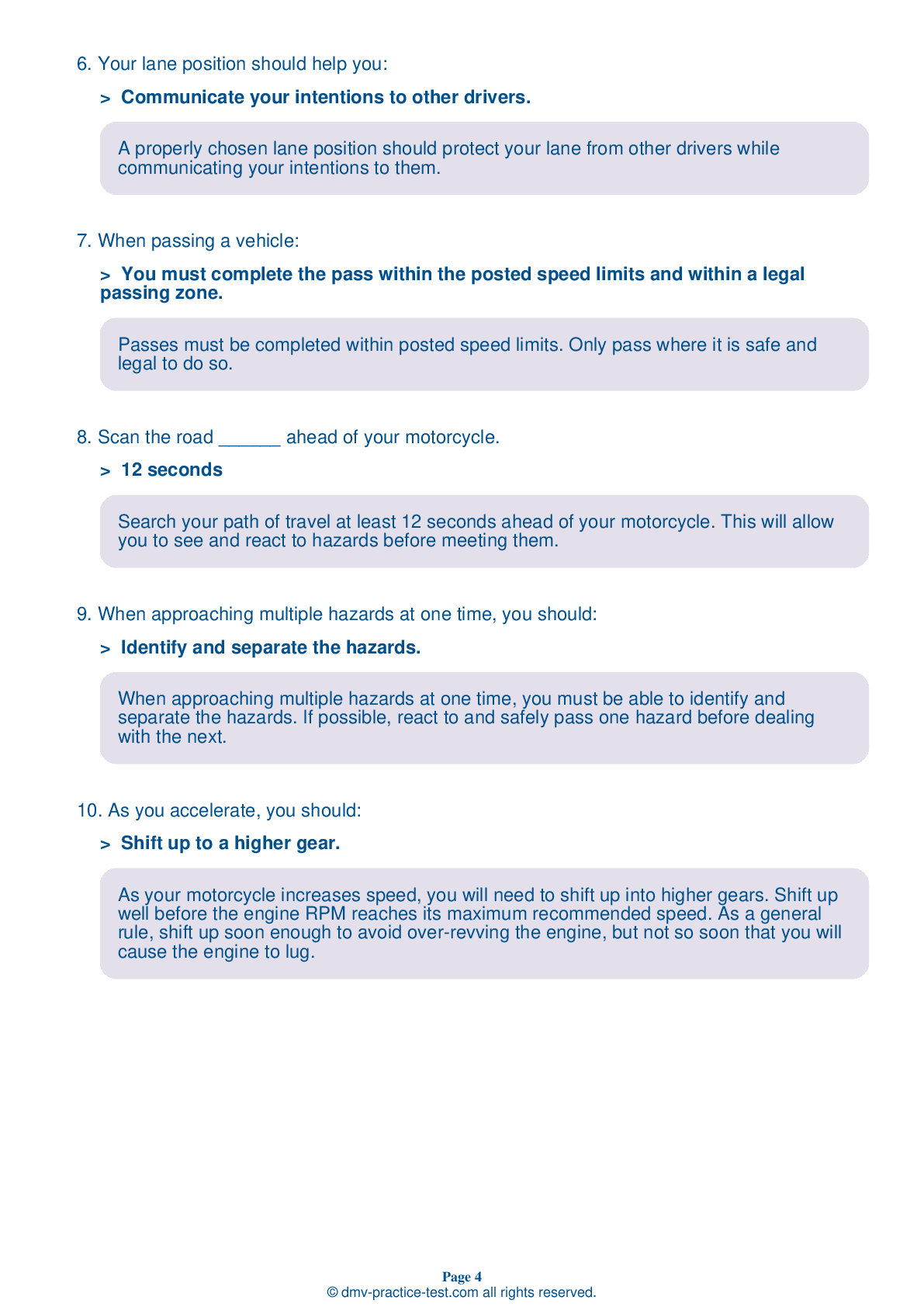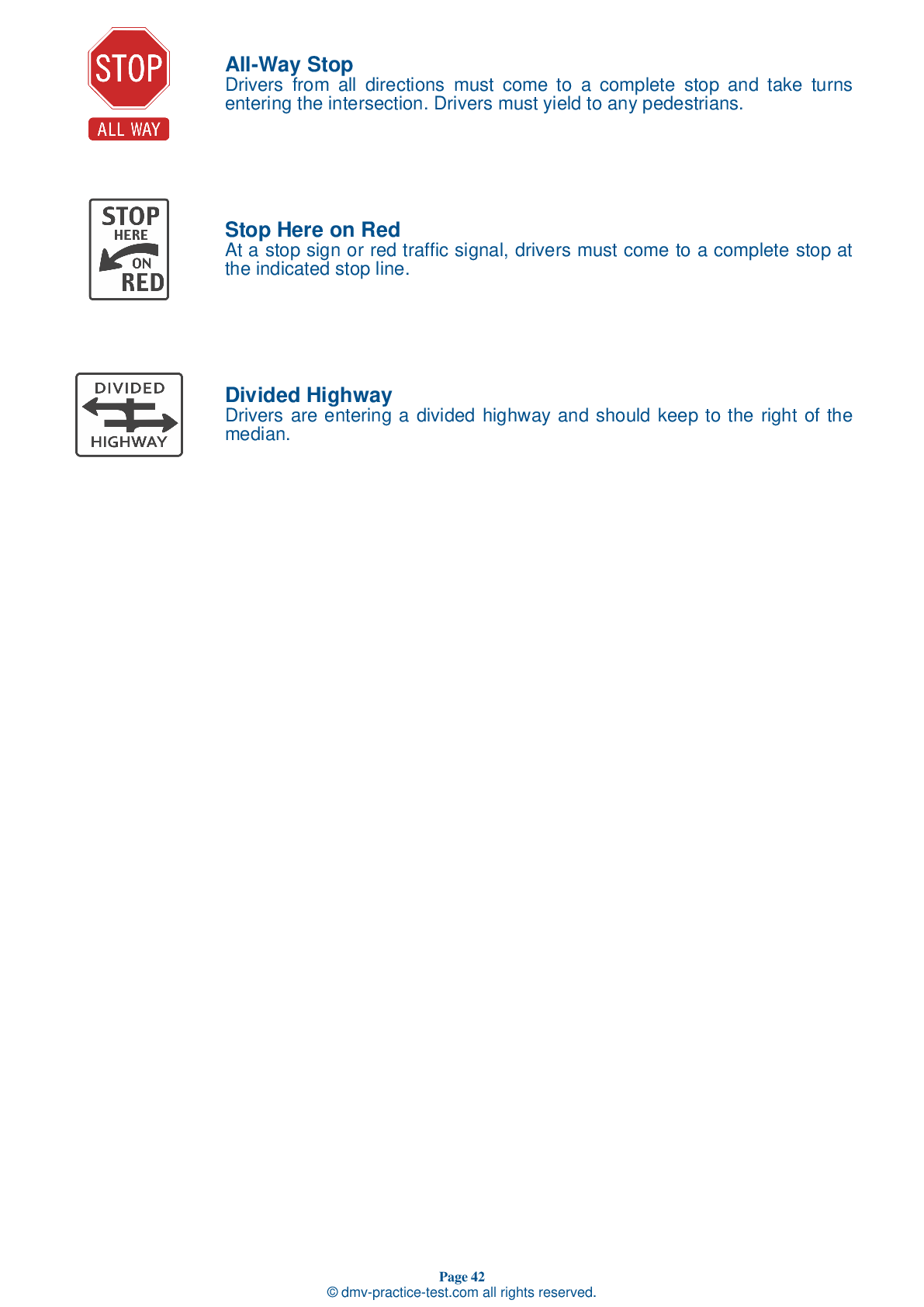Motorcycle Test | License AZ 2026 | FREE Online Practice! #15 Page 2 of 4
Take this FREE motorcycle test (license in AZ 2026) to check your knowledge of the road rules. To improve your results, download a motorcycle handbook online, study theory, and practice for free on our website. Still worried about how to get a motorcycle license in Arizona in 2026? Check our website for more sample tests, train as much as possible, and boost your grades!
9 . Which of the following is not a benefit of riding in a close group?
Riding in close ranks is recommended over riding in a group that is spread out because the group will take up less space on the road, be easier for others to see, and be less likely to get separated at traffic lights and during passes.
10 . When approaching a blind intersection, riders should:
When approaching a blind intersection that is controlled by a stop line or stop sign, you must first stop where indicated. You may then edge forward and stop again just short of where the cross traffic lane meets your lane. From that position, lean your body forward and look around buildings, parked cars, or bushes to see if anything is approaching. Make sure your front wheel stays out of the crossroad while you are looking.
11 . To lower the chance of a crash, you should do all of the following, except:
To reduce your risk of being involved in a crash, you must ensure that you are visible to others on the road and that other drivers understand what you're planning to do. Clearly communicate your intentions through proper signaling and lane positioning. Maintain an adequate space cushion and scan your path of travel, identifying upcoming hazards and being prepared to react.
12 . This road sign means:
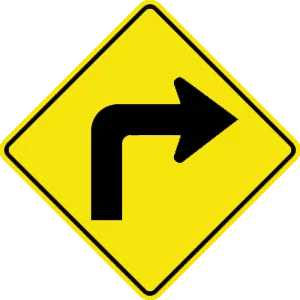
This sign indicates that there is a sharp right turn ahead.
13 . A proper lane position can help you do all of the following, except:
Your lane position affects a number of factors that are important to your safety on the road. Among other things, your position should help you increase your ability to see and be seen, avoid other drivers' blind spots, and set you up for any turns you plan to make.
14 . This sign means:
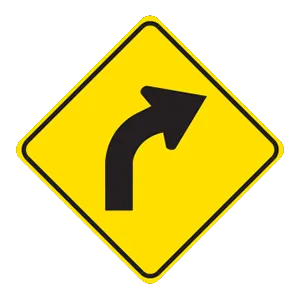
Warning signs prepare drivers for upcoming road conditions and hazards and are usually yellow with black markings. This sign alerts drivers to an upcoming curve in the road.
15 . When you ride, the best gear to wear is:
You should wear gear that helps protect you while you ride. It is best to wear a DOT-approved helmet, face or eye protection, and protective clothing.
16 . What does alcohol do to your riding skills and judgement?
Alcohol negatively affects many skills needed for safe riding, including your reaction time and ability to see clearly. It can also harm your judgment of speed and distance, lower your inhibitions, and make you more prone to taking chances.
See the exact questions that will be on the 2026 Arizona DMV exam.
99.2% of people who use the cheat sheet pass the FIRST TIME
Jeneen was tired of paying $5/gallon. She got herself a scooter that required the motorcycle license. She studyed the motorcycle test cheat sheet and passed her test the next day!
Christopher tells us how he knew nothing prior to obtaining the motorcycle study guide, and he only got one question wrong because he clicked on the wrong answer by mistake.
